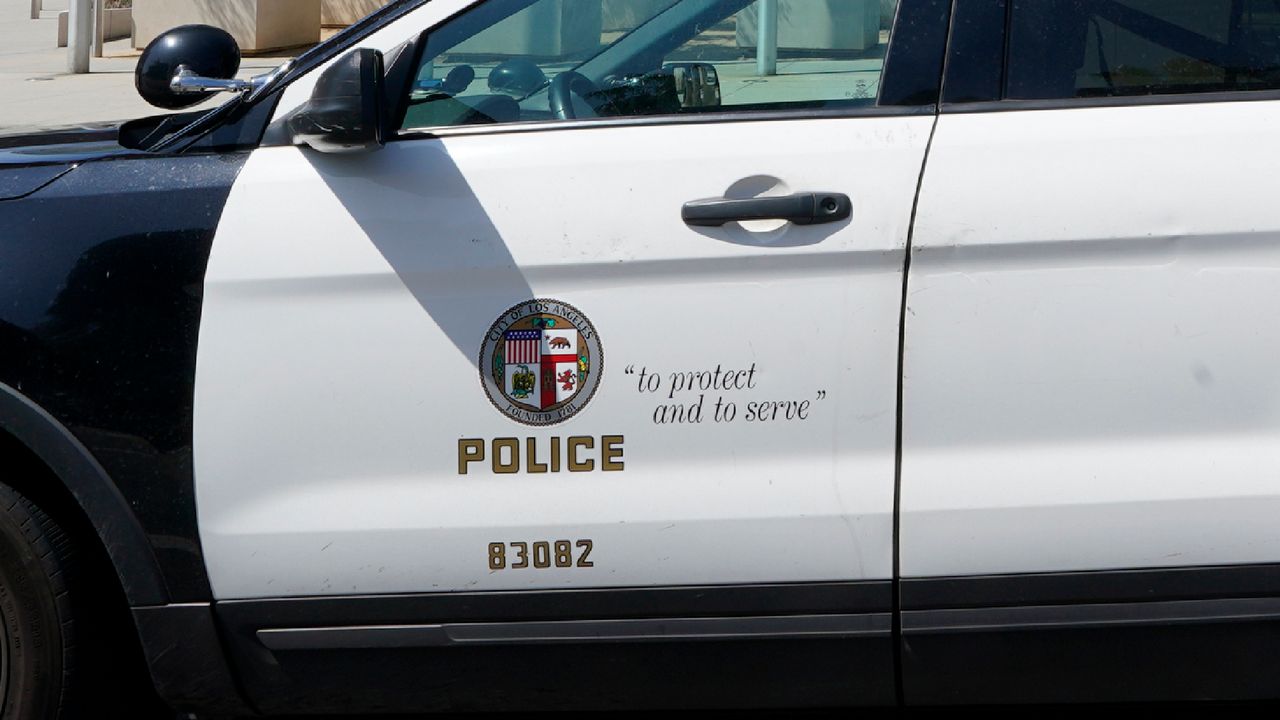LOS ANGELES — As public cries increase for the Los Angeles Police Department to lessen its armed response to mental health crises, the department could be challenged by a tight job market. The clinicians LAPD relies on for its co-response with the LA County Department of Mental Health are hard to come by.
That’s one of the findings in a new LAPD Office of the Inspector General report presented Tuesday to the police commission. Conducted in response to an LA City Council motion passed earlier this year, the report looked at the volume of mental health-related and domestic violence-related calls and LAPD response times, as well as needed resources for the teams that respond to such incidents.
“It’s abundantly clear that a significant number of LAPD calls involve a person who’s experiencing some effect of mental illness or has become a victim of domestic violence,” Inspector General Mark Smith told the commission. “Given this reality, it’s critical that the department do whatever it can to maximize the number of times its response to such calls includes trained clinicians and/or civilian advocates.”
Failing to respond with unarmed help, he added, does a disservice to those who are experiencing a mental health episode or are being victimized by a domestic abuser.
The report looked at the number of emergency calls involving two of its co-response programs for which the LAPD is dispatched along with unarmed professionals: SMART and DART. The Systemwide Mental Assessment Response Team engages with individuals experiencing a mental health crisis and connects them with appropriate services. Deployed 24 hours a day, seven days a week, a SMART unit includes a plain-clothes officer, an LA County Department of Mental Health clinician and a patrol unit to de-escalate situations where the subject is violent, armed or has committed a criminal act.
The Domestic Abuse Response Team dispatches an LAPD officer and as many as two domestic violence advocates to respond to incidents of reported abuse with the goal of providing education, resources and follow-up services to victims. It operates 10 hours a day, four days a week and is generally requested by a patrol unit.
The inspector general report found the number of mental health-related calls in 2022 had decreased since 2018, but the percentage of calls requesting a SMART team response has increased. The number of SMART teams that responded to such calls, however, has decreased from 41% in 2018 to 29% in 2022.
The report found that LAPD response times have slowed since before the pandemic. In 2018, it took the police 6.9 seconds to respond to a Code 3 call reporting a serious public hazard such as a crime in progress where preservation of life is a factor and 18 seconds to respond to a Code 2 call that was urgent but not life-threatening. In 2022, it took 7.7 seconds to respond to a Code 3 and 22.4 seconds to respond to a Code 2.
The LAPD currently operates 11 to 14 SMART units daily. To reduce response times and increase the number of mental health-related calls to which a SMART unit can respond, the Office of the Inspector General recommends increasing them to 24.
Such an increase would require 36 more police officers and 31 additional LA County Department of Mental Health clinicians, the report said, but hiring is likely to be a challenge. Even before COVID-19, one-third of California’s population lived in an area with a mental health professional shortage, according to the Health Resources and Services Administration.
“This happens to be the program’s biggest hurdle and challenge,” Inspector General Special Investigator Samuel Colina told the police commission. “This is due to competitive salaries being offered by other sectors in the industry, more appealing work hours and perks such as working from home. It’s an uphill battle.”
The Office of the Inspector General also recommends the LAPD expand its DART units and track response time data for its SMART and DART units specifically, so they can respond to emergencies more quickly.



